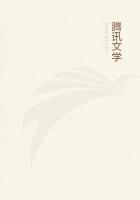"The dead languages will be entirely discarded ... the foreign living languages, however, ... will remain of secondary importance." Only where intercourse between nations extends to the movement of the masses of the peoples themselves would these languages be made accessible, according to needs and in an easy form. "Really educative study of language" will be provided by a kind of general grammar, and particularly by study of the "substance and form of one's own language" {426-27}.
The national narrow-mindedness of modern man is still much too cosmopolitan for Herr Dühring. He wants also to do away with the two levers which in the world as it is today give at least the opportunity of rising above the narrow national standpoint: knowledge of the ancient languages, which opens a wider common horizon at least to those people of various nationalities who have had a classical education; and knowledge of modern languages, through the medium of which alone the people of different nations can make themselves understood by one another and acquaint themselves with what is happening beyond their own borders. On the contrary, the grammar of the mother tongue is to be thoroughly drilled in. "Substance and form of one's own language", however, become intelligible only when its origin and gradual evolution are traced, and this cannot be done without taking into account, first, its own extinct forms, and secondly, cognate languages, both living and dead. But this brings us back again to territory which has been expressly forbidden. If Herr Dühring strikes out of his curriculum all modern historical grammar, there is nothing left for his language studies but the old-fashioned technical grammar, cut to the old classical philological pattern, with all its casuistry and arbitrariness, based on the lack of any historical basis. His hatred of the old philology makes him elevate the very worst product of the old philology to "the central point of the really educative study of language" {427}. It is clear that we have before us a linguist who has never heard a word of the tremendous and successful development of the historical science of language which took place during the last sixty years, and who therefore seeks "the eminently modern educative elements" {D. K. G. 504} of linguistics, not in Bopp, Grimm and Diez, but in Heyse and Becker of blessed memory.
But all this would still fall far short of ****** the young citizen of the future "rely on himself". To achieve this, it is necessary here again to lay a deeper foundation, by means of "the assimilation of the latest philosophical principles". "Such a deepening of the foundation, however, will not be... at all a gigantic task", now that Herr Dühring has cleared the path. In fact, "if one purges of the spurious, scholastic excrescences those few strictly scientific truths of which the general schematics of being can boast, and determines to admit as valid only the reality authenticated" by Herr Dühring, elementary philosophy becomes perfectly accessible also to the youth of the future. "Recall to your mind the extremely ****** methods by which we helped forward the concepts of infinity and their critique to a hitherto unknown import" -- and then "you will not be able to see at all why the elements of the universal conception of space and time, which have been given such ****** form by the deepening and sharpening now effected, should not eventually pass into the ranks of the elementary studies...
The most deep-rooted ideas" of Herr Dühring "should play no secondary role in the universal educational scheme of the new society" {D. Ph. 427-28}.
The self-equal state of matter and the counted uncountable are on the contrary destined "not merely to put man on his own feet but also to make him realise of himself that he has the so-called absolute underfoot".
The people's school of the future, as one can see, is nothing but a somewhat "ennobled" Prussian grammar school in which Greek and Latin are replaced by a little more pure and applied mathematics and in particular by the elements of the philosophy of reality, and the teaching of German is brought back to Becker, of blessed memory, that is, down to about a fourth-form level. And in fact, now that we have demonstrated Herr Dühring's mere schoolboy "knowledge" in all the spheres on which he has touched, the reader will "not be able to see at all" why it, or rather, such of it as is left after our preliminary thorough "purging", should not all and sundry "eventually pass into the ranks of the elementary studies" -- inasmuch as in reality it has never left these ranks. True, Herr Dühring has heard something about the combination of work and instruction in socialist society, which is to ensure an all-round technical education as well as a practical foundation for scientific training; and this point, too is therefore brought in, in his usual way, to help the socialitarian scheme {284, 414}. But because, as we have seen, the old division of labour, in its essentials, is to remain undisturbed in the Dühringian production of the future, this technical training at school is deprived of any practical application later on, or any significance for production itself; it has a purpose only within the school: it is to replace gymnastics, which our deep-rooted revolutioniser wants to ignore altogether. He can therefore offer us only a few phrases, as for example, "young and old will work, in the serious sense of the word" {D. C.
328}.















